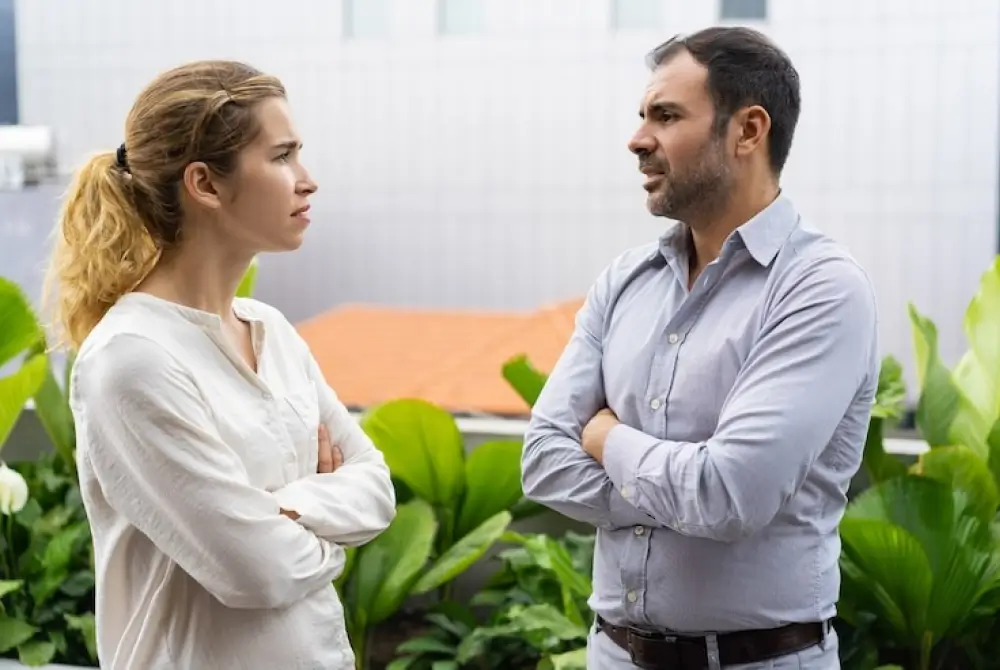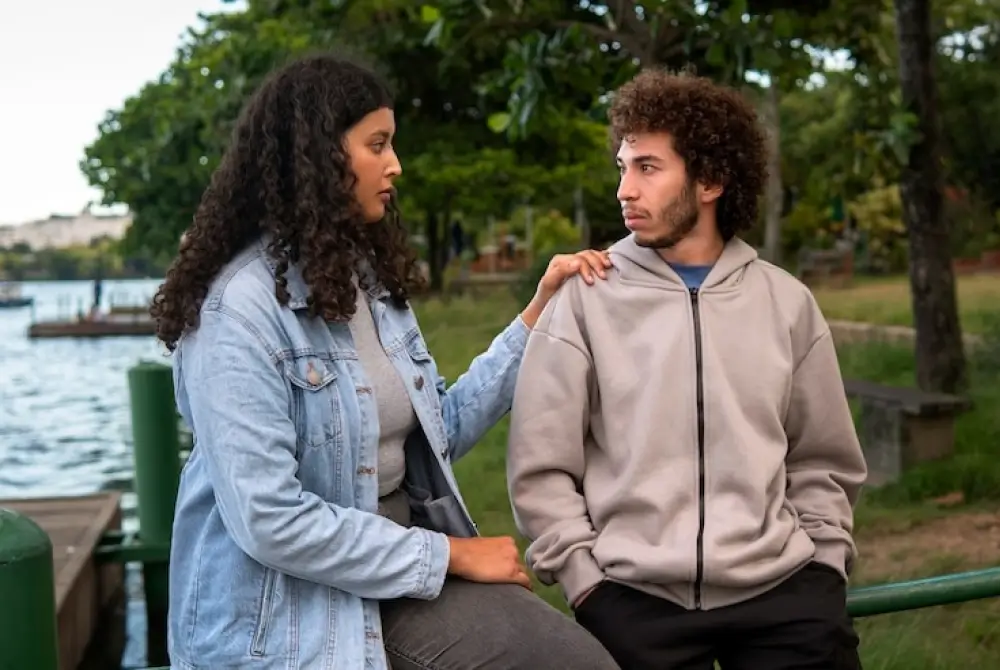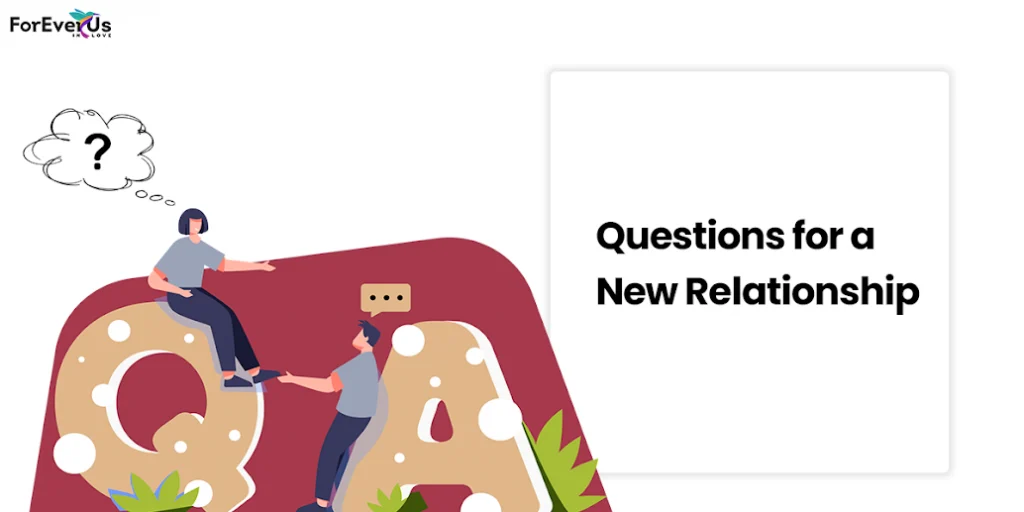Finding your way through relationships can be like trying to find your way through a maze while blindfolded. It’s not always clear if the person you’re with is the one for you. In the journey of love, it’s essential to notice the signs that show you might be with the wrong person.
This guide will explore 15 clear signs to watch out for. From trust issues to feeling neglected, these signs offer insights into whether your relationship is truly fulfilling. By recognizing these red flags, you can take steps to ensure your happiness and well-being in your romantic endeavors. Remember, understanding your worth and finding a partner who respects and cherishes you is essential for a fulfilling relationship journey.
So let’s get started with there is no trust in a relationship.
1. There Is No Trust In The Relationship

Trust is the foundation of any healthy relationship. When trust is absent, doubts and insecurities can overshadow your bond, leading to unease and instability. If you find yourself constantly questioning your partner’s motives or actions, it may be a sign that trust is lacking in your relationship. Without trust, the foundation of your connection becomes shaky, making it challenging to build a fulfilling partnership. This lack of trust can be one of the signs you’re not with the right person.
After recognizing the importance of trust in a relationship and understanding the consequences of its absence, here are 6 practical tips to help rebuild trust and strengthen the foundation of your partnership:
- Open Communication: Encourage honest and open conversations where both partners feel comfortable expressing their thoughts, concerns, and emotions without fear of judgment. Transparency is key to rebuilding trust and addressing any underlying issues.
- Consistency and Reliability: Demonstrate consistency and reliability in your actions and words to show your commitment to rebuilding trust. Follow through on promises, be punctual, and prioritize honesty in all interactions.
- Apologize and Take Responsibility: Take ownership of any mistakes or breaches of trust, and offer sincere apologies to your partner. Acknowledge the impact of your actions and express genuine remorse, showing your willingness to make amends and rebuild trust.
- Establish Boundaries: Clearly define boundaries and expectations within the relationship to prevent future misunderstandings or breaches of trust. Respect each other’s boundaries and commit to upholding them to rebuild a sense of safety and security.
- Seek Professional Help: Consider seeking guidance from a couples therapist or counselor specializing in trust issues. Professional intervention can provide valuable insights, tools, and strategies to navigate trust issues effectively and rebuild a stronger foundation for your relationship.
- Practice Patience and Forgiveness: Rebuilding trust takes time and patience. Be patient with each other’s progress and setbacks, and practice forgiveness as you work through past hurts. Cultivate a mindset of understanding and empathy to foster healing and reconciliation in your relationship.
2. You're Giving More Than You're Getting

A relationship should be a two-way street, with both partners actively contributing to each other’s happiness and well-being. However, if you constantly find yourself giving more than you’re receiving, it can lead to resentment and imbalance.
Pay attention to whether your needs and desires are met in the relationship. If you consistently put in more effort without receiving the same level of care and consideration, something may be off. This difference in effort can be one of the signs you’re not right for each other.
However, feeling constantly tired due to the imbalance of effort in the relationship can affect your emotional well-being. It’s like pouring from an empty cup, eventually leading to feelings of exhaustion and emotional emptiness.
Recognizing these signs early on is crucial for maintaining happiness and overall well-being. It’s important to communicate your feelings with your partner and work together to establish a healthier balance that meets your needs. Remember, prioritizing your well-being is essential for cultivating a fulfilling and sustainable relationship.
Remember, prioritizing your own well-being is essential for cultivating a fulfilling and sustainable relationship.
3. You Often Feel Lonely Or Dissatisfaction

You should feel supported, valued, and emotionally fulfilled in a healthy relationship. However, if you frequently experience feelings of loneliness or dissatisfaction, it could be a sign that your needs are not being met. Pay attention to how you feel when you’re with your partner. Do they uplift and nourish your spirit, or do you long for something more?
Trust your instincts and acknowledge when something feels off, as it may indicate that the relationship is not serving your highest good. These feelings of loneliness and dissatisfaction could indicate dating the wrong person.
It would be best to proactively communicate openly with your partner to address loneliness or dissatisfaction. Here are some practical tips to help you navigate these challenges and strengthen your bond:
- Quality Time: Make an effort to spend meaningful time together, engaging in activities you enjoy. Schedule regular date nights or outings to strengthen your bond and connection.
- Express Needs: Communicate your needs and expectations to your partner. Let them know what actions or behaviors would make you feel more supported and fulfilled in the relationship.
- Seek Support: If you’re struggling with feelings of loneliness or dissatisfaction, don’t hesitate to seek support from friends, family, or a therapist. Talking to a trusted confidant can provide valuable perspective and guidance.
- Self-Care: Focus on self-care and activities that bring joy and fulfillment outside the relationship. Invest time in hobbies, exercise, or relaxation techniques to nurture your well-being.
- Reevaluate Relationship: Reflect on whether the relationship aligns with your values and long-term goals. If consistent efforts to address issues are ineffective, consider whether the relationship truly serves your highest good.
4. They Don't Really Listen To You

Communication is vital in any successful relationship. When partners actively listen to each other, they show respect, empathy, and understanding. However, if your partner constantly tunes you out or dismisses your thoughts and feelings, it can create a sense of disconnection and frustration.
Feeling unheard or dismissed can weaken the foundation of trust and intimacy in a relationship, making it challenging to maintain a deep connection. This lack of communication and understanding can indicate that you’re falling in love with the wrong person.
In addition to recognizing the signs of a disconnect in your relationship, implementing these practical tips can help build a stronger connection with your partner:
- Active Listening: Give your partner your full attention when they speak without interrupting. Show empathy and understanding by repeating their words in your way and validating their feelings.
- Open and Honest Communication: Be transparent about your thoughts, feelings, and needs, and encourage your partner to do the same. Create a safe space for open dialogue without fear of judgment.
- Avoid Blame and Criticism: Instead of blaming each other when you argue, talk about how you feel and what you need using “I” statements. This helps you have a better conversation and makes it less likely for you to get defensive.
- Practice Empathy: Put yourself in your partner’s shoes and seek to understand their perspective. Show empathy by acknowledging their emotions and validating their experiences.
- Set Boundaries: Establish clear boundaries in your relationship and respect each other’s limits. Communicate openly about what is and isn’t acceptable behavior to ensure mutual respect and understanding.
- Quality Time: Dedicate regular, uninterrupted time to connecting and communicating with your partner. This will strengthen your bond and allow for meaningful conversations that deepen your connection.
If you are looking for the tips to improve communication in your relationship then here is our guide on how to improve communication in a relationship.
5. They Aren't Willing To Compromise

Compromise is essential for the health and longevity of any relationship. It requires both partners to be willing to meet each other halfway and make sacrifices for the greater good of the partnership. However, if your partner consistently refuses to compromise or insists on having their way all the time, it can create tension and resentment.
A lack of willingness to compromise can indicate selfishness or a disregard for your needs, signaling that the relationship may not be sustainable in the long run. This unwillingness to compromise can be one of the signs you’re with the wrong person.
Adding compromise to your relationship has many benefits that make it stronger and more resilient. Here are five key benefits of compromise:
- Enhanced Understanding: Compromise encourages partners to listen to each other’s perspectives, fostering a deeper understanding of each other’s needs, preferences, and values. Through compromise, couples can gain insight into their partner’s viewpoints, leading to greater empathy and connection.
- Improved Communication: Negotiating compromises requires effective communication skills, such as active listening and clearly expressing thoughts and feelings. Engaging in constructive dialogue promotes open communication channels, reducing misunderstandings and conflicts in the relationship.
- Strengthened Bond: Collaborating to find solutions and reach agreements cultivates a sense of teamwork and partnership. Shared decision-making and problem-solving experiences can strengthen the emotional bond between partners, creating a greater sense of unity and solidarity.
- Conflict Resolution: A compromise is a constructive approach to resolving conflicts and disagreements in a relationship. By finding a middle ground and accommodating each other’s needs, couples can navigate disputes more effectively, leading to quicker resolutions and less lingering resentment.
- Promotion of Equality: Embracing compromise fosters a sense of equality and fairness in the relationship. Both partners can contribute their perspectives and preferences, ensuring neither party dominates decision-making processes. This equitable power distribution promotes mutual respect and fosters a healthier relationship dynamic.
6. They Think The World Revolves Around Them
When one partner consistently believes the world revolves around them, it can create an imbalance of power and lead to feelings of insignificance. In a healthy relationship, both partners should feel valued and respected as equals.
Pay attention to whether your partner shows empathy and consideration for your feelings or if they consistently prioritize themselves without considering how it affects you. Feeling like you’re always playing second place can be one of the signs of a sneaky person.
7. There's More Conflict Than Comfort

Conflict is a natural part of any relationship, but it should not be the predominant feature of your interactions with your partner. If you find that you’re constantly butting heads or engaging in heated arguments, it can create a toxic environment that weakens the foundation of your connection.
While disagreements are bound to happen, they should be approached with respect, empathy, and a willingness to find common ground. If conflict dominates your relationship and leaves you tired, it may be a sign that you’re not with the right person.
To promote healthier communication and resolve conflicts effectively, consider implementing these practical strategies for navigating disagreements constructively.
- Practice Active Listening: When your partner expresses their thoughts or concerns, give them your full attention without interrupting. Repeat what they’ve said to ensure you understand their perspective before responding.
- Use “I” Statements: Instead of placing blame or pointing fingers, express your feelings using “I” statements. For example, say, “I feel frustrated when…” rather than “You always make me feel…”
- Take a Timeout: If emotions are running high, agree to take a break from the discussion and revisit it when both of you are calmer. This can prevent arguments from escalating and allow for more productive communication.
- Seek Compromise: Approach disagreements with a willingness to find common ground and compromise. Brainstorm solutions together and be open to alternative perspectives.
- Practice Empathy: Try to understand your partner’s feelings and motivations, even if you disagree with their viewpoint. Showing empathy can help de-escalate conflicts and foster a deeper connection between you and your partner.
These strategies can help transform disagreements into opportunities for growth and understanding in your relationship.
8. You Never Feel Like You're “Good Enough.”

Feeling accepted and appreciated for who you are, flaws and all, is fundamental in a healthy relationship. However, if your partner constantly criticizes or puts you down, it can damage your self-esteem and sense of self-worth.
Take note of whether your partner’s words and actions uplift and empower you or if they consistently make you feel not good enough or unworthy. Feeling like you’re never “good enough” can be a red flag that you’re dating the wrong person.
9. You Don't Feel Like a Priority

Both partners should prioritize each other’s needs and well-being in a relationship. However, constantly feeling like you’re taking a backseat to other commitments or interests in your partner’s life can create feelings of neglect and resentment.
Pay attention to whether your partner makes an effort to include you in their life and prioritize quality time together or if they consistently prioritize other people or activities above your relationship. Feeling like you’re not a priority can signal that you’re dating the wrong person.
For example, Imagine it’s your birthday, a day you’ve been excited about for weeks. You drop hints and reminders, hoping your partner will do something special for you. But when the day arrives, there’s no card or even a simple “Happy Birthday.” You feel sad and forgotten, wondering why your partner didn’t make any effort to make you feel special.
This is just an example of what it feels like not to be important in a relationship. It’s like always coming second to other things your partner cares about. This feeling can make you doubt how much you matter and whether your relationship is strong. While it’s normal for priorities to shift sometimes, feeling like this all the time can hurt. It can make you feel sad and affect how you feel about your relationship.
Talking to your partner about these feelings is essential. You need to tell them how their actions make you feel. By talking openly and finding ways to put each other first, you can strengthen your relationship and ensure that you both feel loved and appreciated.
10. You No Longer Feel Safe In The Relationship

Emotional and physical safety are non-negotiables in any healthy relationship. If you ever feel threatened, intimidated, or unsafe in your partner’s presence, it indicates that something is seriously wrong.
Pay attention to whether your partner respects your boundaries and treats you with kindness and compassion or if they exhibit controlling or abusive behaviors. Feeling unsafe in a relationship is a major red flag that should not be ignored. It’s essential to ask yourself, “Am I dating the wrong person?”
Watch out for these signs that your partner might be controlling or abusive:
- Keeping you away from friends and family: They might try to stop you from seeing the people you care about or make you feel bad for spending time with them.
- Always checking up on you: They might constantly want to know where you are, who you’re talking to, and what you’re doing. They might even try to control your phone or social media.
- Threatening behavior: They might make you feel scared by threatening you with violence or saying things that make you feel unsafe.
- Playing mind games: They might make you doubt yourself or feel guilty about things that aren’t your fault. They might twist the truth or make you think you’re going crazy.
- Controlling your money: They might try to control your finances, making it hard for you to spend or be independent.
Remember, it’s okay to seek help and support if you feel unsafe or controlled. You deserve to be in a relationship where you feel respected and valued.
11. Hanging Out With Them Drains You
Feeling energized, happy, and fulfilled after spending time with your partner is a characteristic of a healthy relationship. However, if you consistently feel drained, exhausted, or emotionally exhausted after being with them, it can indicate that the relationship is not nourishing your soul.
Notice whether your interactions with your partner leave you feeling uplifted or drained, and trust your instincts if something feels off. Feeling constantly drained by your partner’s presence can be a sign that you’re dating the wrong guy.
12. You Have To Work Hard For Attention

Attention is an essential aspect of any relationship. It’s how we show love, affection, and appreciation for our partners. However, if you constantly have to work hard to get your partner’s attention or affection, it can create feelings of insecurity and lack of being enough.
Keep an eye on whether your partner makes an effort to prioritize you and show you affection or if you must constantly fight for their attention. Feeling like you must work hard for attention can be a sign that you’re dating the wrong person.
Before we go any further, let’s take a moment to think about ourselves:
- Do you tell your partner when you need attention or keep it to yourself to avoid problems?
- Do you do things that might push your partner away, like shutting down emotionally or avoiding talking about important things?
- Have you clarified what you want from your partner regarding attention and affection, or do you go along with what they want?
- Are there any past experiences or worries that make you feel you need more attention than you’re getting?
- How do you react when you feel your partner isn’t paying enough attention to you? Do you keep it inside or talk to them about it?
Take some time to think about these questions. Understanding how you act in your relationship can help you figure out how to deal with feeling like you’re working hard for attention. And remember, knowing yourself better can lead to better relationships.
13. They Don't Seem To Get You

Feeling understood and appreciated by your partner is essential for a healthy relationship. However, if your partner consistently fails to understand or empathize with your thoughts, feelings, and experiences, it can create a sense of disconnection and loneliness.
Pay attention to whether your partner tries to listen and understand you indeed or if they dismiss or ignore your feelings. Feeling like your partner doesn’t “get” you can be a sign that you’re dating the wrong person.
14. They Don't Respect Your Boundaries

Respecting each other’s boundaries is crucial for maintaining trust and intimacy. However, if your partner constantly disregards your boundaries or tries to manipulate you into doing things you’re uncomfortable with, it can create resentment and mistrust.
Take note of whether your partner respects your limits and allows you to make your own choices or if they consistently push you beyond your comfort zone. Feeling like your boundaries are constantly being violated can be a sign that you fell in love with the wrong person.
Let’s talk about practical ways to tell your partner about your boundaries and ensure they respect them.
- Know Your Boundaries: Consider what makes you feel comfortable or uncomfortable in your relationship. It could be needing personal space, not liking teasing or wanting honesty.
- Talk Clearly: Be direct but kind when you tell your partner about your boundaries. Use “I” statements to talk about how you feel. For example, instead of saying, “You always invade my privacy,” you could say, “I feel uncomfortable when my personal space is not respected.”
- Set Rules: Decide what will happen if your boundaries are ignored. It could be taking a break or having a serious talk. Make sure your rules are fair and something you can follow through on.
- Stick to Your Rules: Once you’ve set your boundaries and rules, stick to them. Even if it’s hard, showing that you mean what you say is important.
- Take Care of Yourself: Setting boundaries can be tough, so ensure you care for yourself. Do things that make you feel good and talk to someone you trust if you struggle.
- Get Help if You Need It: If you’re struggling to set boundaries or your partner won’t respect them, talk to someone who can help, like a friend or a counselor. They can give you advice and support.
Remember, telling your partner about your boundaries and making sure they follow them is something you get better at with time. It might take a while, but by using these tips, you can feel stronger and ensure your relationship respects your rules.
15. They Criticize You All The Time

Helpful feedback is a healthy part of any relationship, as it helps partners grow and improve together. However, if your partner frequently criticizes or puts you down without offering helpful advice, it can damage your self-esteem and confidence.
Notice whether your partner’s criticism supports your growth or is meant to demean or control you. Feeling constantly criticized can be a sign that you’re dating the wrong person.
It is important to have a straightforward talk with your partner about how their constant criticism makes you feel. Here’s some guidance to help you have this chat:
- Choose the right time and place: Pick a time when you and your partner are calm and free from distractions. Choose a private setting to have an open and honest conversation without interruptions.
- Be specific: Describe times you felt criticized and explain how it affected you. This can help your partner grasp the consequences of their actions.
- Express your needs: Make it clear that you want helpful advice, not hurtful comments. Tell them you appreciate their thoughts, but too much negativity can hurt your feelings about yourself and the relationship.
- Listen actively: Allow your partner to share their perspective without interrupting. Practice active listening by restating their points in your own words to ensure mutual understanding.
- Collaborate on solutions: Work together to find solutions that address the underlying issues behind the criticism. Brainstorm alternative ways to communicate feedback and establish boundaries that respect each other’s feelings.
- Reaffirm your commitment: Remind your partner of your commitment to the relationship and your desire to work through challenges together. Highlight that open communication and mutual respect are essential for a healthy partnership.
Remember, having difficult conversations is a normal part of any relationship, and addressing issues like constant criticism can strengthen your bond and foster greater understanding between you and your partner.
Conclusion
Getting through the complexities of relationships can be tough, but paying attention to the signs that might indicate you’re with the wrong person is crucial. Trust your instincts and prioritize your happiness and well-being above all else. If you find yourself experiencing any of the signs mentioned above, it may be time to reassess your relationship and consider whether it’s truly serving your highest good. Remember, you deserve to be with someone who respects, values, and cherishes you for who you are. Don’t settle for anything less than you deserve.
And if you’re looking for a serious and meaningful relationship, consider checking out ForeverUs In Love, our dating app designed for those seeking lasting connections. With a focus on compatibility and shared values, ForeverUs In Love is here to help you find your perfect match.











